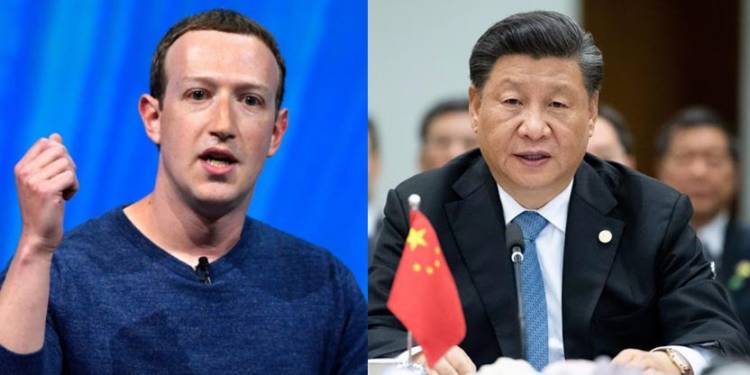Mark Zuckerberg had one dream since Facebook emerged as a global hit – to enter China, considering its largest internet market- in terms of the number of users. Therefore, the restriction of Facebook in China served as an incessant eyesore for Zuckerberg. His repeated visits to China and speaking Mandarin, however, invited no reciprocation in goodwill from the CCP, which continues to disallow Facebook from initiating operations in China. Now, with the global ire against China and its CCP regime peaking, Facebook has finally given up on its China-centric endeavours and is positioning itself as an anti-CCP crusader.
Speaking in front of a House Judiciary subcommittee hearing into companies dubbed ‘Big Tech’, Zuckerberg had a noticeably, and radically different tone. The subcommittee called upon the four big CEO’s of the world simultaneously for an inquisition relation to ‘tech anti-trust’. Sundar Pichai from Google, Tim Cook of Apple, Mark Zuckerberg representing Facebook and Jeff Bezos from Amazon were in attendance.
While the other three honchos maintained their neutrality, Zuckerberg did not hold himself back, and went all-out against China, portraying the country as one which stands as a threat to ‘American values’. “Facebook stands for a set of basic principles” including “keeping people safe, upholding democratic traditions like freedom of expression,” he said. Zuckerberg added that these “are fundamental values for most of us, but not for everyone in the world, not for every company we compete with or the countries they represent…If you look at where the top technology came from a decade ago, the vast majority were American. Today, almost half are Chinese.”
Zuckerberg drew a clear distinction between Chinese companies, and those from America or other free nations. He also pointed out how China’s digital clout was increasing around the world steadily.”China is building its version of the internet focused on very different ideas and they are exporting their vision to other countries,” he warned. The very different ideas which Zuckerberg referred to are those which are anti-democratic and anti-free speech in nature. As such, Mark flags the possibility of increasing Chinese clout over the internet as a threat to values on which America and much of the free world prides itself in.
While all the four CEOs warned against the US placing restrictions on Big Tech, especially in the context of cryptocurrencies, as China according to them would then gain the upper hand to lead innovation across the world, Zuckerberg went a step ahead and outrightly condemned China for indulging in American intellectual property theft. “I think it’s well documented that the Chinese government steals technology from American companies,” he said when asked about the practice.
While Google and Apple continue to have a large-scale business interest in China and will refrain from inviting the wrath of the CCP by making aggressively anti-China statements, Facebook has no such commitments. As a matter of fact, Facebook has given up on its ambitions of penetrating the Chinese market and is instead now focussing on securing and cementing its position in free countries of the world like US and India. Amazon has limited business interests in China remaining; because of the Alibaba group which has posed a herculean challenge to the US Company’s ambitions in the CCP-controlled mainland. Even so, Jeff Bezos refrained from taking an anti-China stand.
Mark Zuckerberg therefore, has emerged as the outlier. The Facebook CEO is painting an image of “Facebook good, Chinese bad” in the United States. Owing to the collective anti-China sentiments of majority of the countries, he has realised that in a post-COVID world, to be perceived to be in China’s camp would be suicidal, and hence he is positioning himself and his social media conglomerate accordingly, making an assertively patriotic pitch back in the United States.
Zuckerberg is also not shying away from openly attacking TikTok for acting as an espionage tool of the CCP. “While our services, like WhatsApp, are used by protesters and activists everywhere due to strong encryption and privacy protections, on TikTok, the Chinese app growing quickly around the world, mentions of these protests are censored, even in the U.S,” the Facebook CEO had said earlier. In America’s existing politically charged atmosphere, anti-China sentiments remain largely bipartisan. Therefore, by attacking China and its apps, Facebook is working quite a genius plot to deflect all detrimental action which it might have invited on its way by being perceived, over the years, as a company wanting to enter the Chinese market, and also being biased against conservatives.































